Renault Trafic Bus vs VW ID. Buzz Bus – Which car suits you better?
Costs and Efficiency:
Price and efficiency are key factors when choosing a car – and this is often where the real differences emerge.
Renault Trafic Bus has a to a small extent advantage in terms of price – it starts at 38200 £, while the VW ID. Buzz Bus costs 42900 £. That’s a price difference of around 4616 £.
Engine and Performance:
Power, torque and acceleration are the classic benchmarks for car enthusiasts – and here, some clear differences start to show.
When it comes to engine power, the VW ID. Buzz Bus has a significantly edge – offering 340 HP compared to 170 HP. That’s roughly 170 HP more horsepower.
In acceleration from 0 to 100 km/h, the VW ID. Buzz Bus is significantly quicker – completing the sprint in 6.10 s, while the Renault Trafic Bus takes 10.60 s. That’s about 4.50 s faster.
In terms of top speed, the Renault Trafic Bus performs to a small extent better – reaching 180 km/h, while the VW ID. Buzz Bus tops out at 160 km/h. The difference is around 20 km/h.
There’s also a difference in torque: VW ID. Buzz Bus pulls clearly stronger with 679 Nm compared to 380 Nm. That’s about 299 Nm difference.
Space and Everyday Use:
Beyond pure performance, interior space and usability matter most in daily life. This is where you see which car is more practical and versatile.
Seats: Renault Trafic Bus offers convincingly more seating capacity – 9 vs 5.
In curb weight, Renault Trafic Bus is somewhat lighter – 2031 kg compared to 2400 kg. The difference is around 369 kg.
In maximum load capacity, the Renault Trafic Bus performs significantly better – up to 4000 L, which is about 1795 L more than the VW ID. Buzz Bus.
When it comes to payload, Renault Trafic Bus distinct takes the win – 982 kg compared to 600 kg. That’s a difference of about 382 kg.
Who wins the race?
The VW ID. Buzz Bus proves to be is largely superior and therefore becomes our DriveDuel Champion!
VW ID. Buzz Bus is the better all-rounder in this comparison.
Costs and Consumption
View detailed analysis
Engine and Performance
View detailed analysis
Dimensions and Body
View detailed analysis
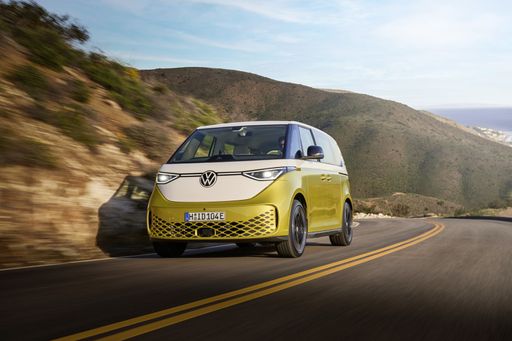 @ Volkswagen AG / VW Media
@ Volkswagen AG / VW Media
VW ID. Buzz Bus
Renault Trafic Bus
The Renault Trafic is a practical people-carrier that prefers sensible space and smart flexibility to showroom gloss, making it a top pick for families, shuttle operators or anyone ferrying a crowd without fuss. It’s comfortable, economical in everyday running and blessedly uncomplicated — not the most glamorous vehicle, but brilliantly dependable when you need it to be.
detailsVW ID. Buzz Bus
The VW ID. Buzz revives the classic camper van vibe with a modern electric twist, offering plush space and a friendly, futuristic face that stops traffic. It’s clearly built for weekend escapes and city runs alike, with clever interior details that make it as practical as it is charming.
details @ Volkswagen AG / VW Media
@ Volkswagen AG / VW Media
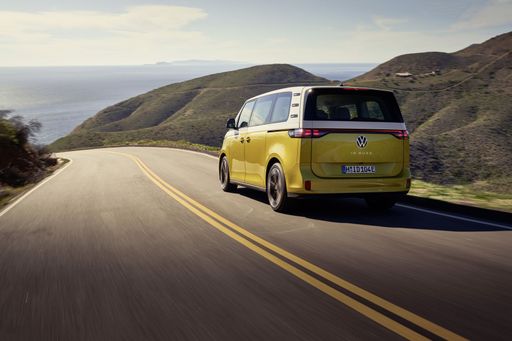 @ Volkswagen AG / VW Media
@ Volkswagen AG / VW Media
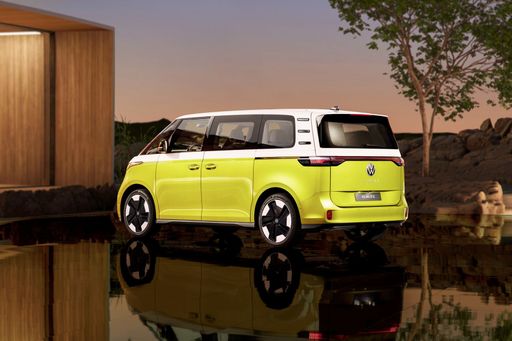 @ Volkswagen AG / VW Media
@ Volkswagen AG / VW Media
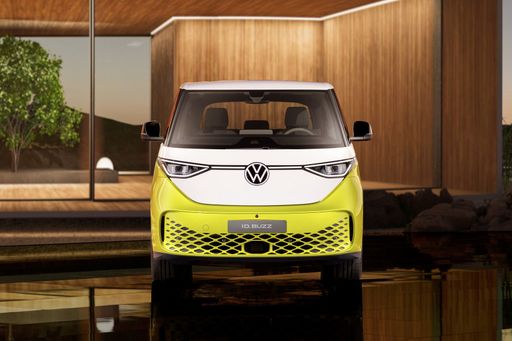 @ Volkswagen AG / VW Media
@ Volkswagen AG / VW Media
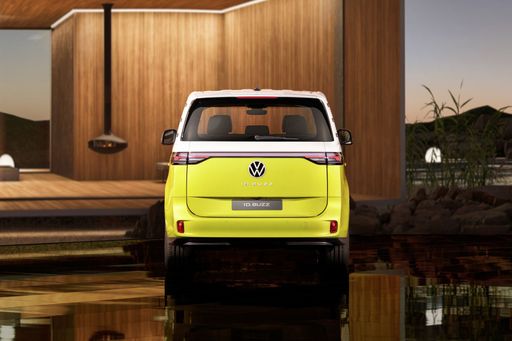 @ Volkswagen AG / VW Media
@ Volkswagen AG / VW Media
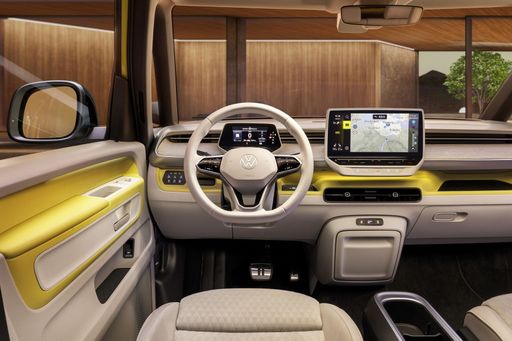 @ Volkswagen AG / VW Media
@ Volkswagen AG / VW Media
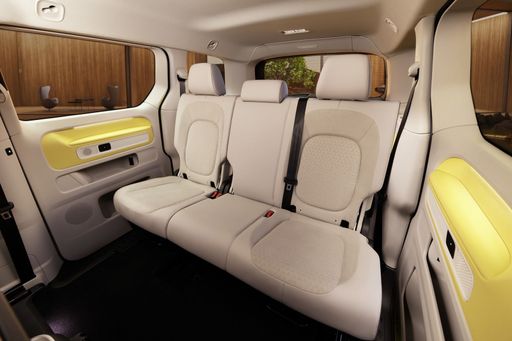 @ Volkswagen AG / VW Media
@ Volkswagen AG / VW Media
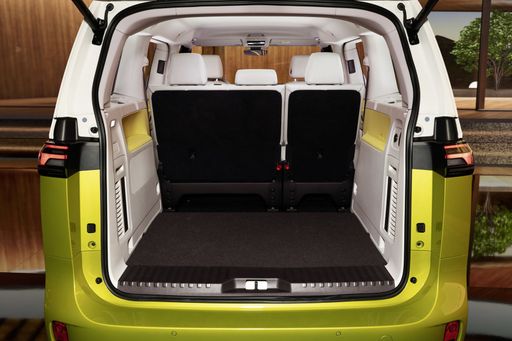 @ Volkswagen AG / VW Media
@ Volkswagen AG / VW Media
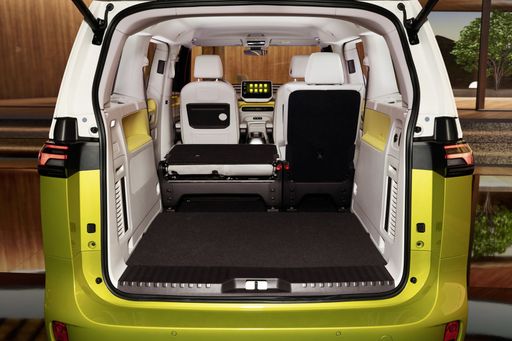 @ Volkswagen AG / VW Media
@ Volkswagen AG / VW Media
 @ Volkswagen AG / VW Media
@ Volkswagen AG / VW Media
|
|
|
|
|
Costs and Consumption |
|
|---|---|
|
Price
38200 - 54400 £
|
Price
42900 - 64200 £
|
|
Consumption L/100km
6.7 - 7.2 L
|
Consumption L/100km
-
|
|
Consumption kWh/100km
-
|
Consumption kWh/100km
19 - 20.6 kWh
|
|
Electric Range
-
|
Electric Range
329 - 485 km
|
|
Battery Capacity
-
|
Battery Capacity
59 - 86 kWh
|
|
co2
175 - 189 g/km
|
co2
0 g/km
|
|
Fuel tank capacity
80 L
|
Fuel tank capacity
-
|
Dimensions and Body |
|
|---|---|
|
Body Type
Bus
|
Body Type
Bus
|
|
Seats
8 - 9
|
Seats
5
|
|
Doors
4
|
Doors
5
|
|
Curb weight
2031 - 2352 kg
|
Curb weight
2400 - 2780 kg
|
|
Trunk capacity
-
|
Trunk capacity
1121 - 1340 L
|
|
Length
5080 - 5480 mm
|
Length
4712 - 4962 mm
|
|
Width
1956 mm
|
Width
1985 mm
|
|
Height
1973 - 1974 mm
|
Height
1924 - 1927 mm
|
|
Max trunk capacity
3200 - 4000 L
|
Max trunk capacity
2205 L
|
|
Payload
718 - 982 kg
|
Payload
462 - 600 kg
|
Engine and Performance |
|
|---|---|
|
Engine Type
Diesel
|
Engine Type
Electric
|
|
Transmission
Manuel, Automatic
|
Transmission
Automatic
|
|
Transmission Detail
Manual Gearbox, Automatic Gearbox
|
Transmission Detail
-
|
|
Drive Type
Front-Wheel Drive
|
Drive Type
Rear-Wheel Drive, All-Wheel Drive
|
|
Power HP
110 - 170 HP
|
Power HP
170 - 340 HP
|
|
Acceleration 0-100km/h
10.6 - 16.5 s
|
Acceleration 0-100km/h
6.1 - 10.7 s
|
|
Max Speed
161 - 180 km/h
|
Max Speed
145 - 160 km/h
|
|
Torque
300 - 380 Nm
|
Torque
310 - 679 Nm
|
|
Number of Cylinders
4
|
Number of Cylinders
-
|
|
Power kW
81 - 125 kW
|
Power kW
125 - 250 kW
|
|
Engine capacity
1997 cm3
|
Engine capacity
-
|
General |
|
|---|---|
|
Model Year
2023 - 2025
|
Model Year
2024
|
|
CO2 Efficiency Class
G, F
|
CO2 Efficiency Class
A
|
|
Brand
Renault
|
Brand
VW
|
What drive types are available for the Renault Trafic Bus?
The Renault Trafic Bus is offered with Front-Wheel Drive.
The prices and data displayed are estimates based on German list prices and may vary by country. This information is not legally binding.
